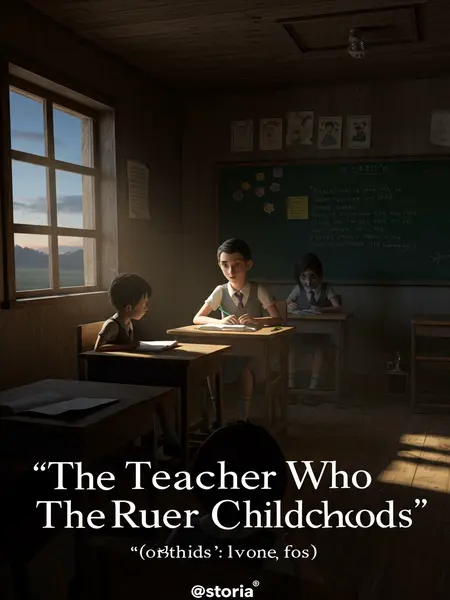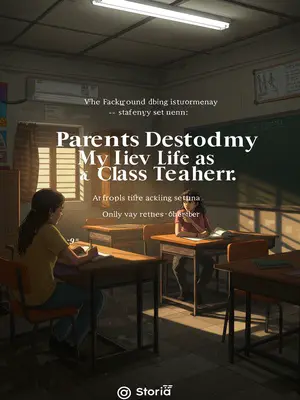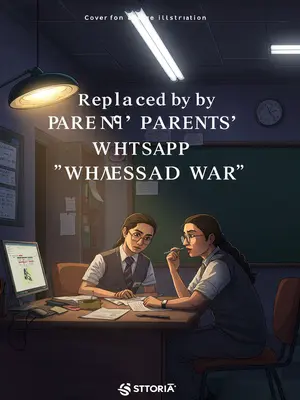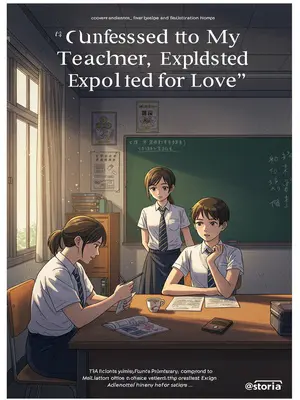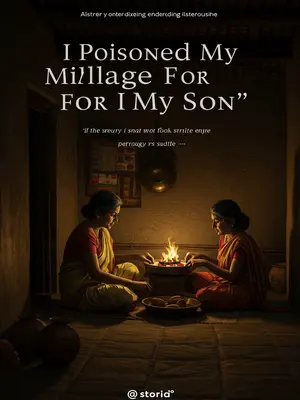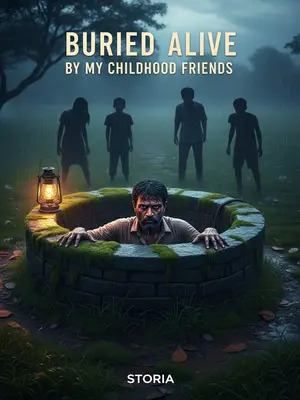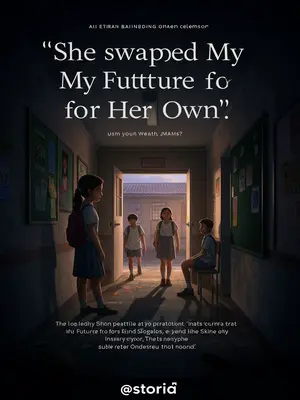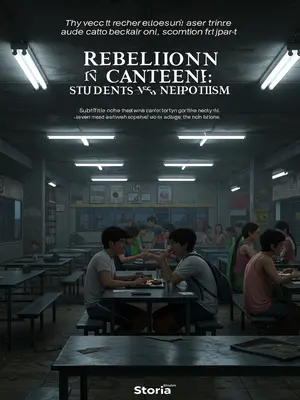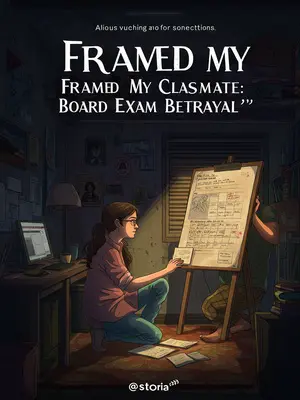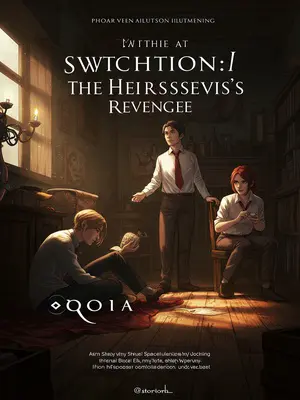Chapter 2: Questions and Shadows
The girl's name was Anjali. Both her parents had passed away, so she had always lived with her grandfather, Ramdas, a farmer in the village.
Anjali was the kind of child who’d greet elders with a shy “Namaste” and help her Dadaji tie up the goats every evening. Her parents, lost to illness years ago, were spoken of in whispers by neighbours. Ramdas, with his white dhoti and wrinkled palms, did his best, but grief had carved deep lines on his face.
After the incident, we found the grief-stricken Ramdas to question him, and only then did we learn the details.
Ramdas sat on the charpai in front of his hut, his hands trembling as he tried to pour tea for us. He fumbled with the tea glasses, spilling a little, his eyes darting to the women gathered nearby as if searching for help he knew wouldn’t come. He looked much older than his fifty-two years, his eyes red from sleepless nights. The village women had gathered quietly at a distance, heads covered, murmuring prayers.
As Anjali's only guardian, he genuinely had no idea that the child was pregnant.
He stared at the ground, voice cracking: "Sahab, I swear on my ancestors, I didn’t know. She was just a little girl… my only hope."
During those eight or nine months of pregnancy, Anjali’s belly did get a bit bigger, but Ramdas simply thought she was growing and putting on weight.
He explained, "You know, at this age, children start eating more. I thought she was healthy, maybe growing taller—like her mother. Kisne socha tha, sahib?"
So, when Anjali complained of stomach pain that day, he just assumed she had a stomach upset.
"She said, 'Dadaji, pet mein dard ho raha hai.' I gave her jeera water, told her to rest. That’s what my wife used to do for the children."
He told her to rest at home and drink more water, without giving it much thought.
Ramdas’s voice was a hollow whisper, "What did I know? She never cried out loud, just stayed quiet. I thought she’d be fine by evening."
He never imagined Anjali was actually about to give birth.
The old man pressed his forehead with both hands, his voice barely audible: "God knows, not even in my worst dreams did I think it was something like this."
So, as usual, he worked until sunset before coming home.
The sun had barely dipped behind the neem trees when Ramdas trudged home, the sound of his worn slippers echoing in the evening stillness. Villagers were already lighting their lanterns. He carried a sack of fodder and was thinking of his simple dinner: rice and leftover sabzi.
When he arrived, he immediately sensed something was wrong.
There was an unnatural silence—no radio playing, no sounds of utensils clattering. The front door was ajar, creaking gently in the hot wind.
Anjali was lying motionless on the bed. Her lower body, as well as the sheets and quilt, were soaked in blood. The old transistor on the shelf played a bhajan, its melody lost in the thick, metallic smell.
Ramdas dropped his bundle with a dull thud. He rushed to her side, calling her name, his heart pounding so hard he thought it would burst. The sight of the blood, the stillness—he later said it was as if the world had ended in that moment.
She must have been in excruciating pain, suffering for a long time.
Neighbours who gathered later whispered that her nails were clenched, her face twisted in silent agony. Someone covered her with a dupatta, another brought water, but it was too late. The weight of helplessness hung over them all.
This tragic death, though ultimately ruled an accident, had an extremely negative social impact. Our crime branch team was immediately assigned, with me and my colleague Kunal taking the lead.
The village, already wary of outsiders, now looked at every stranger with suspicion. Rumours ran rampant. Kunal and I, both in plainclothes, found ourselves eyed warily at the tea stall as we began our inquiries.
Because she was only 12, according to Section 375 of the Indian Penal Code, regardless of whether she consented, anyone who had sexual relations with her was suspected of rape.
I remember the senior inspector, a sharp old Sikh, reminding us, "Beta, the law is clear. No matter what anyone says, a child cannot consent. Whoever is responsible—he must pay."
We asked Ramdas if he knew whether Anjali had been especially close with any man, but he knew nothing.
He shook his head, looking even more defeated. "She went to school, came back, helped with the chores. Bas. She never spoke of anyone…"
Even though we didn’t question him directly, we couldn’t help but harbour suspicions in this direction.
Some of the junior constables murmured among themselves, suspicious of everyone, even the grieving grandfather. The air was thick with doubt, every word laced with tension.
After all, Ramdas was only 52 at the time. In rural areas, it’s not uncommon for people to become grandparents in their early forties, as late marriage and childbirth are not the norm.
Some of the older villagers nodded knowingly when this was mentioned, as if to say, "Hota hai, sahab. Idhar sab kuch jaldi hota hai."
If it really was him, it would be truly inhuman.
The thought itself was so sickening that Kunal and I exchanged uneasy glances. But protocol meant we had to rule out every possibility.
With no evidence of multiple assailants, our only option was a DNA comparison. Whoever fathered the child was the perpetrator.
The samples were collected quietly, so as not to stir gossip. The local doctor came, face grim, carrying the swabs in a battered old kit. It was a hot, silent afternoon when the evidence was sealed and sent to the district lab.
Fortunately, the test results showed that Ramdas was not the father of Anjali’s child.
I remember Ramdas breaking down again when we told him—part relief, part renewed grief. He looked skyward and whispered, "Thank you, bhagwan. At least my soul will rest…"
So, who was the father?
The question hung in the air like the monsoon clouds, heavy and threatening.
